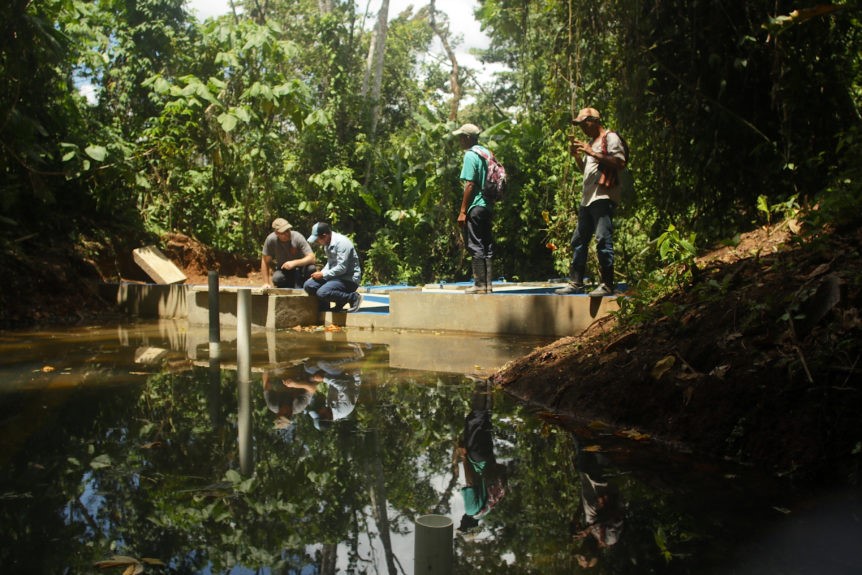
The West Austin Rotary Club was awarded our first Global Grant from Rotary International in June 2019. The grant was made to support water and sanitation projects in two rural Nicaraguan communities – El Aulo and Nueva Jerusalem.
One of our club members, Tab Barker, was instrumental in coordinating the implementation of the project through his organization Project Schoolhouse. In addition, the Rotary Club of Matagalpa, Nicaragua has been a wonderful partner, having completed three Global Grants prior to this one. We hope to be able to travel to these two communities in Spring 2021, as the trip this year was a victim of COVID cancellations. The following text is Tab’s personal statement of what has taken to implement the water and sanitation project in El Aulo, one of the two communities in the grant.
It’s been a long road to getting water to the community of El Aulo in Nicaragua. Twelve years ago Project Schoolhouse partnered with them to build a three-room schoolhouse but we were unable to build a permanent water system.
Persistent roadblocks involving the availability of springs and uncooperative landowners prevented us and other orgs from being able to assist this community until 2019 when we found a design that would work and got funding from Rotary International through a Global Grant and the Burdine Johnson Foundation to finally start work on a water system.
Every project we complete involves serious problem solving and overcoming difficult logistical hurdles, but this project has been exponentially more difficult, even since we began construction in July 2019. One of those obstacles was that the spring providing water to the system was damaged through rogue deforestation and was only going to be able to provide sufficient water for 9 months of the year. On top of aggressive reforestation efforts, we solved this problem through an innovative hybrid system design that involves both a closed spring capture as well as an open water filtration system to provide additional water capacity during the three dry months of the year. To my knowledge, there isn’t another system like this in existence in Nicaragua or further afield.
To break this down, our most common method to harness spring water is to completely seal in the underground water source. This allows us to capture 100% of the spring water, which is already clean and free from contaminants and keep it clean inside a closed system. This is by far the best way to harness water and most of our systems are built like this.
The other way to harness water is to collect surface water with a small dam and then run it through a series of filtration structures to clean it. In El Aulo, we utilized both of these methods to ensure sufficient water to the community for a 30-year design spec accounting for population growth.

This particular open capture is, in my opinion, a work of art and science. Our lead engineer is one of the most respected water engineers in Central America and he built a system that takes water carefully filtered through underground gravel tunnels into another filter involving special fabric and special sand. From there it passes through an ultraviolet filtration process, through two de-sedimentation tanks, and then through another set of special fabric and sand before passing through a chlorination process. At this point the water is triple filtered, double de-sedimented, ultraviolet treated and chlorinated before being stored in a nearly 80,000-gallon storage tank.
The tank is nearly double the normal size in order to make the very best use of the closed capture spring water before turning on the open capture water. Even better, the system has very special controls that allow each part of the system to be turned on or off to allow for regular maintenance and water source management.
It took all the savvy Project Schoolhouse had accumulated in its 15-year history to make this project a reality and I’m thrilled that finally, the community of El Aulo will have a reliable and clean water source after years of carrying water by hand.